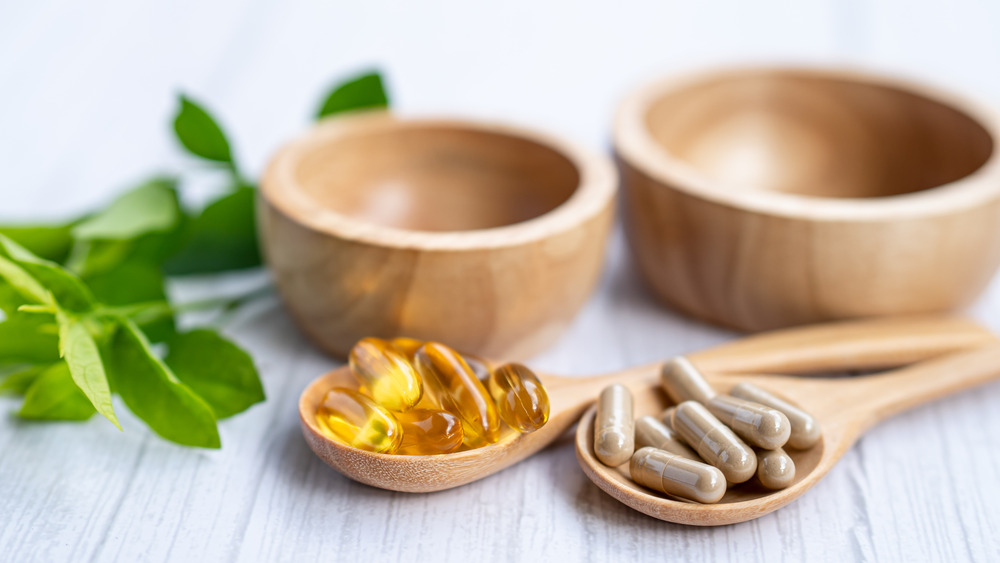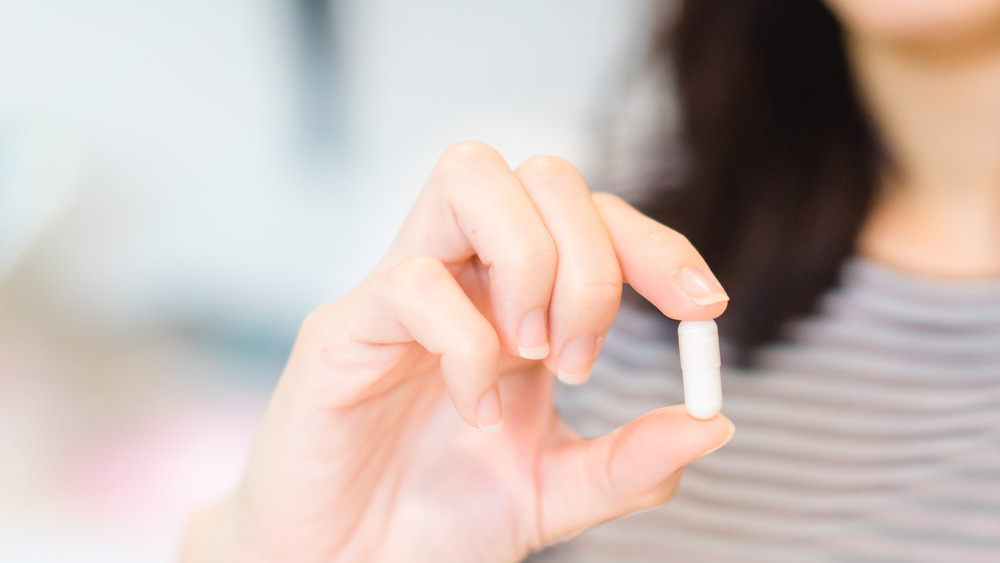Why You Should Think Twice Before Taking Vitamin E
While vitamin E is a powerful vitamin and antioxidant that is essential to your overall health, consuming too much of it can lead to health complications. That's why it's important to get your daily intake of vitamin E through your diet and not supplements (via Best Life). Vitamin E supplements contain high doses of vitamin E that can be harmful to your health.
As an antioxidant, vitamin E can protect your cells from disease-carrying free radicals, which can cause illness and aging. It can also help boost your metabolism and improve your immune system. The average adult requires 15 mg of vitamin E per day, which can be found in a variety of foods, including nuts, seeds, wheatgerm, and plant-based oils like olive oil. Since vitamin E can't be stored in the body for later use, consuming more of it than you need may lead to a vitamin E overdose, or vitamin E toxicity.
What is vitamin E toxicity?
Vitamin E toxicity occurs when too much vitamin E builds up in your body, causing damage to your health (via Healthline). Since vitamin E is a fat-soluble vitamin, it can accumulate in your body fat over time if you're consuming supplements that contain an excessive amount of vitamin E. The upper limit of vitamin E supplements is 1,000 mg per day. Consuming more than that may lead to vitamin E toxicity, which can potentially cause blood thinning or even fatal bleeding. Vitamin E toxicity can also hinder blood clotting and increase your risk of experiencing a hemorrhagic stroke.
To treat vitamin E toxicity, stop consuming high doses of vitamin E. This can easily be achieved by cutting out vitamin E supplements and relying on your diet to acquire your daily intake of vitamin E. However, people experiencing some of the more severe health complications of vitamin E toxicity should contact their doctor immediately.


